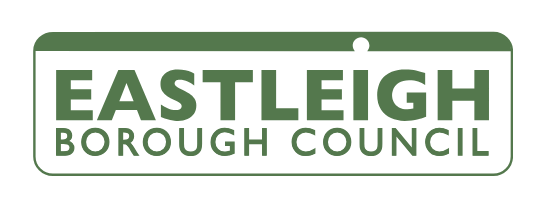Biweekly briefing for financial services, utilities, and telecoms senior leaders on private sector strategies.
From Pressure to Performance — Building a Smart Response Framework
In our last edition, we examined the rising debt pressures facing the private sector — from declining cash flows and increased refinancing risks to a toughening regulatory climate. The warning signs are clear, but the path forward remains murky for many.
This week, we shift from problem to pathway.
A Smarter Response Requires a Smarter Framework
Private sector leaders are increasingly being pulled in two directions: react to short-term liquidity concerns or invest in long-term resilience. The reality is they must do both.
At Liberata, we’re seeing progressive organisations take decisive action across three critical domains:
1. Prioritise High-Impact Debt Segments
Not all debt portfolios are created equal. Organisations are mapping their exposure across customer types, product lines, and risk tiers. The smartest are:
- Segmenting by vulnerability — using behavioural and transactional data to identify customers at risk before default.
- Applying differentiated strategies — treating distressed, vulnerable, and strategic accounts with tailored recovery, support, or restructuring plans.
This creates faster recovery cycles and improves outcomes for customers and shareholders alike.
2. Embed Compliance by Design
With increasing regulatory pressure — especially around Consumer Duty in the UK — it’s no longer enough to have a policy. Compliance must be embedded into systems and services:
- Automated vulnerability triggers are being baked into workflows.
- Proactive engagement models are replacing reactive collection.
- Outcome-led reporting is enabling leaders to show both intent and impact.
This is not just about avoiding fines — it’s about building trust and long-term value.
3. Leverage Technology to Enable (Not Just Track)
Too many organisations still see digital tools as dashboards. The frontier is enabling intelligent action:
- AI models that flag early signs of repayment fatigue.
- Self-service portals that empower customers in arrears.
- Integrated case management systems that blend human and machine responses.
Technology isn’t replacing the human — it’s augmenting their capacity to make better decisions, faster.
What We’re Learning
Across sectors — from utilities to financial services to telcos — leaders are asking: How do we respond better, not just faster?
The organisations answering that question best aren’t the ones with the biggest budgets. They’re the ones building coherent frameworks, cross-functional collaboration, and customer-centric thinking into the heart of their operations.
Let’s Continue the Conversation
What response strategies are working in your organisation or sector? Are there frameworks you’ve found helpful to balance financial recovery and customer care?
About Chris
Chris Melia is a Strategic Customer Success Partner here at Liberata. He works with commercial customers to improve their debt recovery and customer resolution services.

Chris says he is “dedicated to empowering Liberata’s strategic customers to achieve their critical business objectives. I partner closely with executive teams to deeply understand their unique challenges and opportunities, co-creating tailored success strategies that drive tangible results and maximize the value they receive from Liberata’s solutions.”
Previous
13 May 2025
Rising Pressures, Smarter Responses
In boardrooms across the UK, one question keeps surfacing:
“Are we doing enough to manage vulnerability and debt risk—before it becomes a crisis?”
From financial services to housing, utilities, and telecoms, private sector organisations are facing a perfect storm:
- Cost-of-living pressures remain entrenched
- Consumer expectations for flexibility and support have increased
- Regulators are watching closely, with Consumer Duty and vulnerability guidance tightening
The Data Doesn’t Lie Recent figures show growing arrears across essential services.
- Utilities are reporting double-digit increases in late payments
- Housing associations are seeing more tenants choosing between rent and food
- Banks and telcos are facing more complex vulnerability disclosures—and struggling to scale meaningful responses
The challenge is clear: collections teams are under pressure to deliver results without compromising empathy, compliance, or customer trust.
What’s Working?
At Liberata, we’ve seen a clear shift in how the best organisations are responding:
✅ Proactive segmentation and outreach – Using real-time insights to predict arrears and intervene earlier
✅ Omnichannel support – Meeting customers where they are: SMS, email, WhatsApp, live chat
✅ Flexible payment journeys – Empowering customers to self-serve, set up plans, and avoid escalation
✅ Agent enablement – Training frontline staff to identify, triage, and respond to vulnerability with confidence
✅ Tech + Human blend – AI and automation free up time for complex human conversations
The Road Ahead
Debt isn’t just a collections problem. It’s a customer experience, reputational, and regulatory issue.
Those who win will take a cross-functional view—blending risk, operations, digital, and customer care to build smart, ethical and effective responses.
Over the coming months, The Private Sector Debt Pulse will share actionable insight, innovations, and success stories from across the UK market.
If you’re in the thick of this challenge—reach out. Let’s share what’s working.
29 April 2025
Why Traditional Collections Are Failing the Private Sector — And What to Do Instead
Customers are falling into arrears faster than ever—but the collections playbook many organisations still rely on hasn’t evolved.
- Letters sent too late.
- Call scripts that miss the mark.
- Escalations that damage trust.
In 2025, this approach isn’t just outdated. It’s risky.
The economic climate is shifting. So are regulatory expectations. It’s time to rethink how we engage with customers in financial difficulty.
The Private Sector is at a Tipping Point
Across the UK, organisations in sectors like utilities, telecoms, and financial services are facing a dual pressure:
- Recovering more, faster
- Doing it ethically, in line with growing expectations around vulnerability, customer treatment, and compliance
Regulations such as the FCA’s Consumer Duty in the UK and evolving frameworks across make one thing clear:
“It’s no longer about how fast you collect. It’s about how fairly and smartly you engage.”
3 Signs Your Collections Strategy Might Be Failing
- Rising arrears or write-offs that can’t be explained by economic factors alone
- Negative customer sentiment about your debt process, even if recovery numbers are strong
- Disjointed operations between customer service, credit, and compliance teams
These issues aren’t just operational—they’re reputational, regulatory, and financial risks.
A Better Way: Responsible, Data-Led Debt Engagement
Leading organisations are shifting toward a new approach that’s:
- Proactive – engaging early, before default
- Segmented – using customer data to tailor outreach
- Ethical – prioritising outcomes for vulnerable groups
- Omnichannel – offering flexible contact methods that meet customers where they are
At Liberata, we’re helping clients transform how they recover debt—balancing commercial results with long-term brand and customer value.
Mini Insight
One client in the utilities sector reduced complaint volume by 35% and improved recovery by 22%—by rethinking scripts, segmentation, and timing of their collections activity.
Final Thought
The question isn’t whether you should evolve your collections strategy.
The question is: Are you evolving fast enough to meet customer and regulatory expectations?





